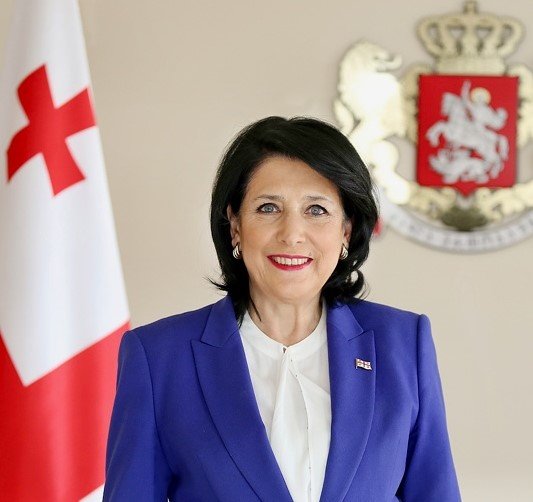Georgian President Salome Zurabishvili has called for urgent talks with political leaders, urging them to schedule new elections by the end of the year during a major rally in Tbilisi.
On Sunday evening, as approximately 200,000 demonstrators gathered on Rustaveli Avenue, Zurabishvili addressed the crowd, reaffirming her commitment to resolving the country’s ongoing political crisis through dialogue. Despite tensions, the President emphasized the importance of upholding the Constitution and finding a democratic solution.
“I remain loyal to the country and to the Constitution before which I took the oath six years ago,” Zurabishvili told the audience. Her words, aimed at easing public unrest, highlighted the urgency of the situation as Georgia faces one of its most significant political challenges in years.
Calls for Talks with Ivanishvili
One of the key moments during the rally was when Zurabishvili directly appealed to Bidzina Ivanishvili, the influential Honorary Chairman of the ruling Georgian Dream party, urging him to engage in talks with her at the President’s Palace. She emphasized the need for a firm commitment to schedule new elections before December 29, 2024.

Zurabishvili’s call comes after growing dissatisfaction over the legitimacy of recent elections in Georgia, which she claimed were neither recognized by the public nor by any international bodies. She argued that the lack of recognized elections has led to a political crisis, with an illegitimate government causing deep divisions within the country.
“Everything is simple here. The elections were not held, and not only were the elections not held, but they are also not recognized by anyone. If these elections are not recognized, and if there is an illegitimate, unconstitutional government, then we are in a deep crisis,” she said, underscoring the stakes for the future of Georgian democracy.
The Urgency of Action
Zurabishvili’s speech underscored a growing sense of urgency. She called on Ivanishvili and other members of the Georgian Dream party, including prominent figures like Irakli Kobakhidze and Shalva Papuashvili, to meet with her as soon as possible to determine the election schedule.
“The only way to resolve this crisis, in every democratic country that seeks to address a deep crisis through political means, is new elections,” the President declared. “I invite the parties that participated in the elections, as well as the organizations that monitored them, to come to the Orbeliani Palace. Come, and let’s talk.”
The President further emphasized that time was running out and that a resolution was needed quickly, noting that December 29 was a crucial deadline for ensuring a legitimate electoral process. “Whoever wants everything to end well in this country, come to the palace. This invitation also applies to Ivanishvili because he manages everything. I am ready for us to sit down and discuss how to schedule the elections, but the date for scheduling them must be agreed upon by the 29th.”
A Nation at a Crossroads
The political standoff in Georgia has attracted significant attention, with critics calling it a critical test for the country’s democratic institutions. Over the past several months, tensions have mounted between the Georgian Dream party and the opposition, which claims that recent elections were marred by fraud and irregularities. Protests and demonstrations, such as the one on Rustaveli Avenue, have become more frequent, reflecting widespread dissatisfaction among Georgian citizens.
As the clock ticks toward December 29, the political landscape remains uncertain. However, Zurabishvili’s call for dialogue has offered a glimmer of hope for a peaceful resolution, with both sides encouraged to meet and find common ground before the deadline.
The President has promised to release a full speech from the Presidential Palace in the coming days, further outlining her proposals for moving the country forward. As Georgia stands at a pivotal moment in its political history, the coming days could determine the future of its democracy and its relations with both the public and international partners.
